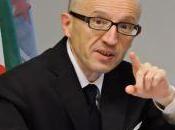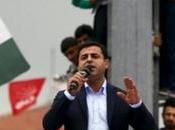Innanzitutto abbiamo chiesto a Wadah come mai Al Jazeera ha cominciato a occuparsi di attività online: è stata vista una enorme opportunità di stabilire una relazione vera con l’audience attraverso i social network, specialmente perché Al Jazeera non aveva una buona relazione con i governi, e non ha ottenuto il permesso ufficiale di coprire le storie. Ci troviamo, secondo Wadah, in un ambiente completamente nuovo, in cui i blogger e i citizen journalist compensano l’assenza di copertura professionale sul posto. Si è così formata un’alleanza con i social network, anche grazie all’apertura di un centro di preparazione per blogger e attivisti, che hanno potuto apprendere i fondamenti del giornalismo e hanno aiutato moltissimo nel coprire i fatti della Primavera Araba.
Un’opportunità dunque, non una minaccia: essendo già sotto grande pressione politica, Al Jazeera ha sostenuto la democrazia attraverso la relazione con i media online.
Per quanto riguarda i numeri, le notizie proveniente dai social network sono state circa il 70% per la Tunisia, e fino al 90% per l’Egitto, durante i giorni della rivoluzione. Dato che il governo aveva bloccato il segnale di Al Jazeera, sarebbe stato impossibile coprire la storia così come è stato fatto, specialmente in Tunisia, Egitto e Siria.
 Molti dei citizen journalist che hanno contribuito sono stati arrestati, altri sono rimasti feriti e altri, specialmente quelli che filmavano e caricavano immagini e video online, sono stati uccisi. I governi hanno compreso il rischio di perdere il controllo sui media e sul potere: gli attivisti sono persone coraggiose, creative, dinamiche, e soprattutto hanno una presenza capillare sul territorio. E’ necessario, secondo Wadah, incoraggiarli, dare supporto ed educarli affinché possano diventare citizen journalist ancora più intelligenti.
Molti dei citizen journalist che hanno contribuito sono stati arrestati, altri sono rimasti feriti e altri, specialmente quelli che filmavano e caricavano immagini e video online, sono stati uccisi. I governi hanno compreso il rischio di perdere il controllo sui media e sul potere: gli attivisti sono persone coraggiose, creative, dinamiche, e soprattutto hanno una presenza capillare sul territorio. E’ necessario, secondo Wadah, incoraggiarli, dare supporto ed educarli affinché possano diventare citizen journalist ancora più intelligenti.Abbiamo chiesto a Wadah come cambierà il ruolo dei social network ora che il particolare momento storico della rivoluzione è passato: secondo lui ora che la democrazia sta cominciando a prendere forma, per esempio in Egitto, Tunisia e Yemen, il ruolo dei SN non sarà più quello di sfidare l’autorità e far cadere regimi, ma diventare parte del dialogo nazionale per creare valori comuni e portare i paesi verso la stabilità, garantendo una società civile e diritti costituzionali.
Negli ultimi anni c’è stato un grande problema di fiducia tra il pubblico e i media tradizionali, specialmente perché questi ultimi servivano i centri di potere e gli interessi delle corporazioni. Ora, tuttavia, le persone hanno delle alternative: non hanno solamente uno o due canali televisivi per informarsi, ma i social network e molti canali TV. Inoltre hanno la possibilità di esprimere le proprie opinioni, discutere e verificare gli eventi che accadono.
Il monopolio del giornalismo dei centri di potere finirà, e la nuova era del giornalismo che ruota intorno alle persone, agli interessi delle persone, e alla ricerca della verità emergerà.
Vi invito a visionare l’intervista integrale, senz’altro più ricca di dettagli e spunti rispetto a questa mia breve sintesi.
Buona visione!
Maria Petrescu @sednonsatiata
Matteo Castellani Tarabini @contepaz83
Jacopo Paoletti @jacopopaoletti
Intervistato.com | Wadah Khanfar #ijf12
For the Intervistato Journalism Festival series, directly from Perugia, we had the pleasure of interviewing Wadah Khanfar, ex director general of Al Jazeera and currently President of Sharq Forum.
First of all we asked Wadah how Al Jazeera started dealing with online activities: it was seen as a great opportunity to establish an authentic relationship with the audience through social networks, especially because Al Jazeera itself didn't have a good relationship with the governments, and hasn't received the permission to cover stories. We are in a completely new environment, in which bloggers and citizen journalists compensate the absence of the professional camera on the field. They created an allegiance with social networks, also thanks to the creatin of a preparation center for bloggers and activists, who were able to learn the fundamentals of journalism and have helped enormously in the coverage of the Arab Spring facts. An opportunity, and not a threat: being already under a lot of political pressure, Al Jazeera has sustained democracy through its relationship with online media.
As for numbers, the news from social networks were about 70% in Tunisia, and up to 90% in Egypt, during the days of the revolutino. Since the government had blocked Al Jazeera signal, it would have been impossible to cover the stories as it has been done, especially in Tunisia, Egypt and Syria.
Many of the citizen journalists who have contributed have been arrested, others were wounded and others, especially those who filmed and uploaded images and videos online, have been shot and killed. Governments have understood the risk of losing control over media and power: activists are coragous, creative, dynamic, and they have a capillary presence on the field. It is necessary to encourage them, give them support and educate them so they may become even more intelligent citizen journalists.
We asked Wadah how the role of social networks will change, now that the particular historical moment of the revolution has passed: he thinks that now, with democracy starting to take shape, for example in Egypt, Tunisia and Yemen, the role of social networks won't be to challenge authority and overthrow regimes, but to become a part of the national dialogue in order to create common values and take countries towards stability, with a civil society and constitutional rights.
During the past few years there has been a great trust issue between audience and traditional media, especially because the latter served centers of power and the interests of corporations. Now, people have alternatives: they don't only have a couple of tv channels to get information, but also social networks and many tv channels. Moreover, they have the possibility to express their own opinions, discuss and verify the events that happen.
The monopoly of journalism on power centers will end, and the new era of journalism that revolves around people, the interests of people and the research of truth will emerge.
I invite you to view the full interview, much richer in details and insights than my brief synthesis.
Enjoy!
Maria Petrescu @sednonsatiata
Matteo Castellani Tarabini @contepaz83
Jacopo Paoletti @jacopopaoletti




